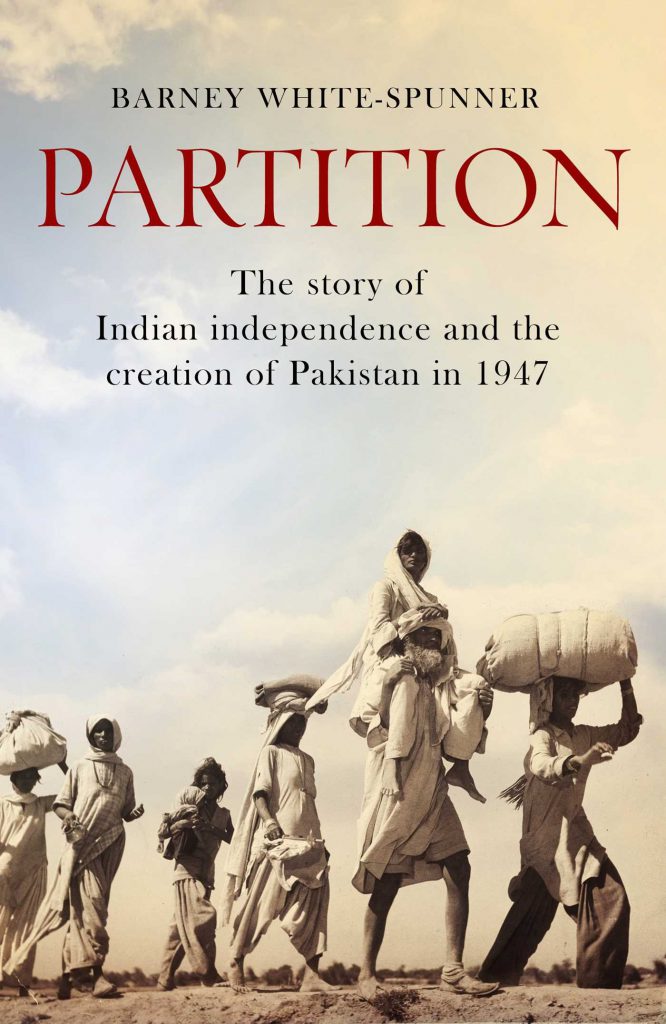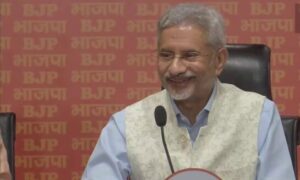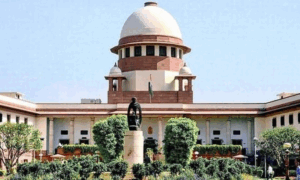
The timing of the book release could not have been more apt. As India celebrates its 70th year of Independence, noted military historian Barney White Spunner has come out with own views in his tellingly told latest book – Partition – The story of Indian Independence and the creation of Pakistan in 1947.
Between January and August 1947 the conflicting tensions of British India culminated in the country being partitioned and the creation of the two independent new states- the republics of India and Pakistan.
Those momentous months saw the end of the ninety years of the British Raj, as the Congress party swept to power, setting up the country’s first modern government in Delhi. They also witnessed the rushed creation of Pakistan, a country into two halves whose capitals were two thousand kilometres apart.
However, the autumn of 1947 also witnessed the dream of independence dissipate into shame and recrimination. Partition of India’s two great provinces Punjab and Bengal forced through in seventy days led to at least ten million people becoming refugees. About one million died many murdered in scenes of sickening medieval violence. Countless more lost their homes and their livelihoods, as the country was dissolved amidst an atmosphere of bloodshed and bitterness.
The events of those two months would dictate the history of South Asia for the next seventy years says the author. Leading to three wars, countless acts of terrorism which has become the scourge of nations the World over, polarization around the Cold War powers and to two nations with millions living in poverty spending disproportionate amounts on enhancing their military arsenal. It could very well be assumed says the author that the roots of much of the violence in the region today , and worldwide are in the decisions taken that year. This is a bitter hard reality. And this is their story.
Not only were those decisions controversial but the people who made them were themselves went on to become some of the most enduring characters of the twentieth century – Mahatma Gandhi, Jawaharlal Nehru, enjoyed almost saint like status in India, While Muhammad Ali Jinnah is lionized in Pakistan, Winston Churchill, Clement Atlee and the Raj’s last viceroy Earl Mountbatten. Their contribution have been praised and dammed in equal measure.
Yet there is an even bigger , more personal story to tell. Many of those ordinary people who witnessed the events of that monumental year are still alive today. Although most of them are in their late eighties and nineties, they still have a clear recollection of the excitement of the independence and the horror of partition.
Illustrating the story of 1947 with their experiences and what independence and partition meant to the farmers of the Punjab, those living in Lahore and Calcutta, or what it felt like to be a soldier in a divided and largely passive army, makes the story real , touching and engrossing to read. Partition is an honest attempt by a military historian to bring to life this terrible era for the Indian Subcontinent.
This book which includes several anecdotes also bring to the fore the traits like never before of – Mahatma Gandhi, Jawaharlal Nehru, Motilal Nehru, Subhas Chandra Bose, Sardar Patel, Bal Gangadhar Tilak , Field Marshal Lord Archibald Wavell, Lord Mountbatten ( his wife Edwina and her alleged romance with Jawaharlal Nehru).
The writer is very candid as why he chose to write this book. And he is clear in the very outset that he has written this book from a soldier’s perspective. It does not purport to be a full history of Indian Independence and the birth of Pakistan.
Such a study according to him would be lifetime’s work, fill many volumes and is correctly best left to professional historians. Rather what I (writer) attempted to do, as someone who has played a small part in the British interventions around the World, is to explore the thinking of and pressures on the politicians, administrators and soldiers of the seventy years ago , and the direct effect their subsequent actions had on the people of the Indian subcontinent.
Inevitably, given my background, I ( writer) have better understanding of the British players in this tragedy than I do of their Indian and Pakistani counterparts. Neither am Ian apologist for Empire.
That is not my role says the author, but what is both terrible and fascinating to explore is what happened when that extraordinarily thin crust, which represented law and order under the Raj collapsed into holocaust.
The author has told in detail month by month of the events that led to the partition. Following the sequence of the events that were unfolding and how the people experienced them at that time, dipping back where necessary to explain the history behind them in a lucid way.
For anyone who is keen to know the events and the circumstances in 1947 ( January – August )that lead to the Partition and creation of Pakistan this is a gripping read.
And finally, the author has a word of advise for any reader when he says that this is also a violent and shocking story, as it must be when so many people died in such terrible circumstances; from the outset you will be confronted by scenes that may make you shudder too.
Partition
The story of Indian Independence and the creation of Pakistan
Barney White Spunner
Simon and Schuster
Pages 403
Rs 699


















